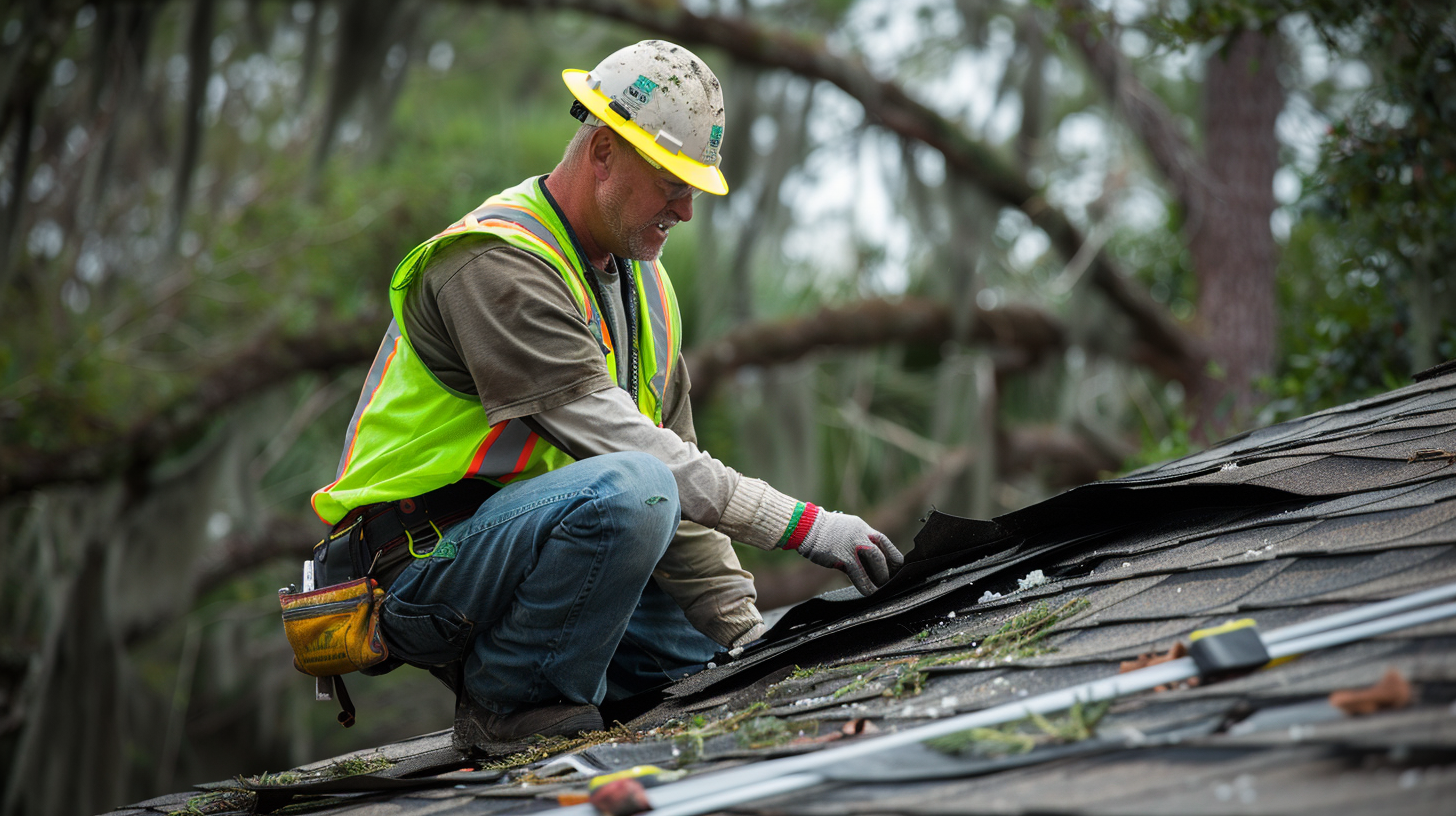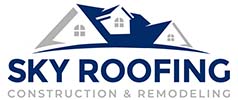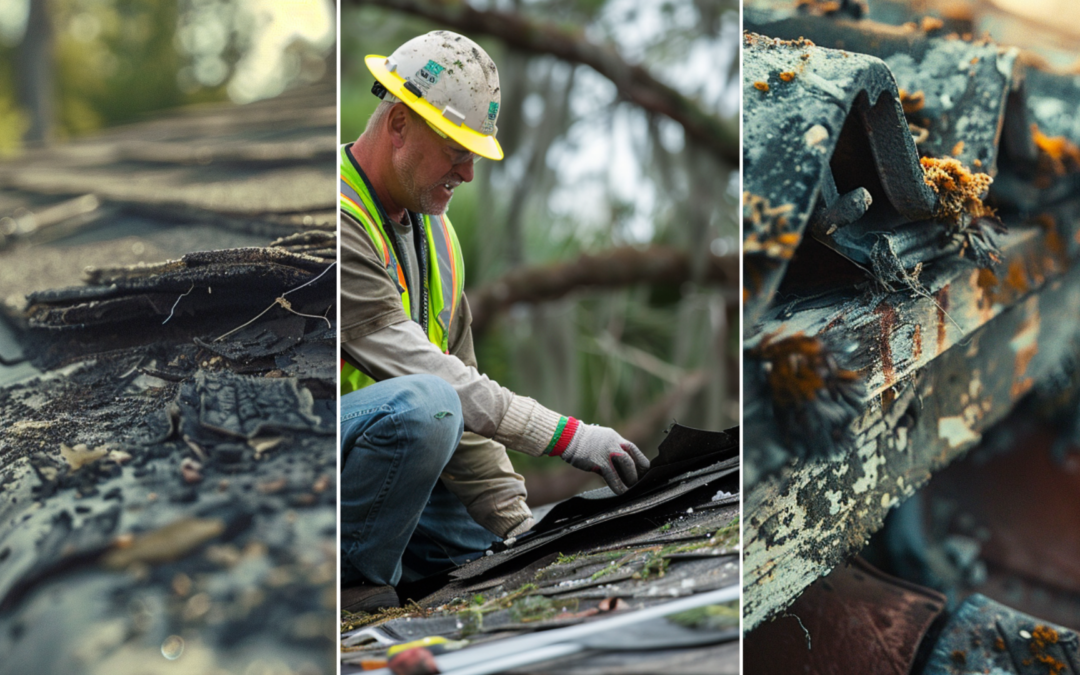Understanding Roof Structural Assessments
Roof structural assessment is a critical process that ensures the integrity and safety of a building’s roofing system. To identify potential weaknesses or damage, it thoroughly examines various components, including beams, trusses, and decking. Regular evaluation prevents costly repairs and extends the roof’s lifespan. Property owners can gain valuable insights into necessary maintenance or upgrades by assessing structural performance, contributing to energy efficiency and safety. Whether you are a homeowner, builder, or property manager, understanding the importance of roof structural assessments can help safeguard your investment and maintain the aesthetic appeal of your property.

Structural Assessment - Importance of Roof Inspection - Sky Roofing Construction & Remodeling
Importance of Roof Inspection in Structural Integrity
Regular roof inspections are essential for maintaining the structural integrity of any building. These evaluations are crucial in identifying potential weaknesses that could lead to significant damage if addressed. By ensuring proper functioning through routine assessments, property owners can guide necessary repairs and extend the lifespan of their roofs. Moreover, inspections inform long-term structural considerations, allowing for proactive measures during the design phase to address known vulnerabilities. By understanding how different elements interact, builders can create more resilient roofs that withstand environmental stresses. Ultimately, a consistent roof inspection routine protects the investment and enhances safety, promptly addressing any underlying issues before they escalate into more severe consequences. Regular maintenance and timely repairs are crucial to avoiding costly future problems, emphasizing the critical nature of roof inspections in safeguarding your property.
Overview of Common Roof Systems and Their Functions
When considering a roof structural assessment, it’s essential to understand the various roof systems in place and their specific functions. Different roofs are designed to meet multiple needs, such as durability, aesthetics, and energy efficiency. Standard roof systems include flat, pitched, and vaulted roofs, each offering unique benefits and challenges. Flat roofs are often utilized in commercial buildings, providing easy access for maintenance and installations, while pitched roofs facilitate water drainage and enhance aesthetic appeal in residential structures. With their sloped designs, vaulted roofs add architectural interest and create additional space for insulation and ventilation. Recognizing the characteristics and functions of these roof systems can help homeowners and builders make informed decisions about maintenance, repairs, and renovations, ultimately contributing to the longevity and safety of the structure.

Structural Assessment - Role of Structural Engineers - Sky Roofing Construction & Remodeling
Role of Structural Engineers in Roof Assessments
When it comes to ensuring the integrity and safety of a building’s roof, structural engineers’ role in roof assessments is paramount. These experts are trained to evaluate a roof’s design, materials, and overall structural conditions to identify potential structural issues. Professional engineers provide invaluable insights into the roof’s performance and longevity by conducting thorough visual inspections and utilizing advanced analytical methods. This assessment helps detect signs of damage or deterioration and anticipates future problems due to dead load, excessive movement, or weather conditions.
Engaging a civil engineer for roof evaluation ensures property owners can make informed decisions regarding maintenance, repairs, or replacements. This not only safeguards their investment but also enhances the structural safety of the building. Additionally, the compressive strength of materials is assessed, and structural inspections are carried out to ensure that the roof can withstand environmental stresses. Utilizing building inspection services further supports comprehensive evaluations of the roof’s condition.

Structural Assessment - Responsibilities - Sky Roofing Construction & Remodeling
Responsibilities of Structural Engineers
A roof structural assessment is critical to ensure your roofing system’s safety, integrity, and longevity. Structural engineers are pivotal in this evaluation, utilizing their expertise to identify potential weaknesses and recommend necessary repairs or enhancements. By thoroughly examining materials, load distribution, and overall design, these professionals provide invaluable insights to homeowners and builders alike. Understanding the responsibilities of structural engineers in the context of roof assessments not only underscores the importance of their work but also highlights the benefits of having a robust and safe roofing structure. Their assessments can lead to improved energy efficiency, reduced maintenance costs, and enhanced property value, making it a wise investment for any property owner.
Collaboration with Other Professionals
Collaboration with other professionals is crucial for ensuring a comprehensive evaluation regarding roof structural assessment. Engaging with architects, engineers, and construction specialists can provide a multifaceted perspective on a roof’s condition and integrity. These experts bring specialized knowledge and skills that complement the assessment process, enhancing the overall quality of the evaluation. Architects can offer insights into design considerations and potential impacts on the structure. At the same time, engineers can delve into the technical aspects, identifying any underlying issues that may not be immediately visible.
Additionally, working alongside experienced contractors can help identify practical solutions and cost-effective strategies for repairs or upgrades. This teamwork not only fosters a deeper understanding of roof conditions but also leads to informed decision-making that enhances the safety and longevity of the roofing system. Collaborating with other professionals ensures a thorough assessment that aligns with best practices and adheres to local building codes, giving homeowners peace of mind in managing their roofing needs.
Understanding Building Codes and Regulations
Understanding building codes and regulations is a crucial component of roof structural assessment that ensures safety, compliance, and longevity. These codes are established by local authorities to set minimum construction standards, including considerations for load-bearing capacity, materials, and overall structural integrity. Adhering to these regulations safeguards the property owner against legal repercussions and enhances the roof’s durability. A thorough understanding of the applicable codes helps inform the evaluation process, allowing necessary repairs or reinforcements to be identified and implemented. By aligning with these standards, homeowners can avoid future issues, maintain property value, and ensure a secure living environment. This foundation provides peace of mind, knowing that the structure has been assessed and built with the utmost attention to regulatory guidelines.
Overview of Current Building Codes Relevant to Roofs
Adherence to current building codes is essential for ensuring structural integrity and safety when considering rooftop solar panel installation on commercial buildings. These codes mandate a thorough structural assessment that evaluates critical factors such as load capacity, wind uplift, seismic forces, and fastener capacities. Local government regulations require that the roof can support the additional weight of solar panels and withstand environmental stresses, which helps prevent potential safety hazards and costly damages. Property owners compile with these building codes to safeguard their investments and enhance the feasibility of solar panel installations, ensuring they are both practical and secure. Conducting a meticulous structural assessment in alignment with these requirements is crucial for a successful transition to renewable energy solutions.
Importance of Compliance in Structural Assessments
When it comes to roof structural assessment, understanding the importance of compliance is crucial for ensuring safety, longevity, and adherence to building codes. A comprehensive evaluation helps identify potential risks and weaknesses in a roof system, allowing homeowners and property managers to address issues proactively. Compliance helps maintain the roof’s structural integrity and ensures that it meets local regulations and standards. Failing to comply with these guidelines can lead to severe consequences, including costly repairs, decreased property value, and, most importantly, safety hazards for occupants. By prioritizing compliance in structural assessments, you protect your investment and enhance your roofing system’s overall resilience and performance.
Critical Components of Roof Structures
A thorough understanding of the critical components of roof structures is essential for any roof structural assessment. Roofs are designed to withstand various environmental stresses and support their weight, making it crucial to evaluate the materials and structural elements involved. Each component, from rafters and trusses to decking and underlayment, plays a vital role in ensuring the integrity and longevity of the roof. Assessing these elements helps identify potential weaknesses or damages and allows for informed decisions regarding repairs and upgrades. By recognizing the importance and function of each key component, property owners can ensure their roofs remain safe, durable, and efficient, ultimately enhancing the overall value of their property.
Schedule Your Roof Structural Assessment Today at Sky Roofing Construction & Remodeling
A structural assessment is essential for ensuring the safety and longevity of your roofing system. By identifying potential issues early, you can prevent costly repairs and maintain the value of your property. Trust Sky Roofing Construction & Remodeling to provide expert evaluations and quality roofing installations (https://skyroofingconstructiontx.com). Call us today at (210) 942-9797 to schedule your assessment and safeguard your investment.




